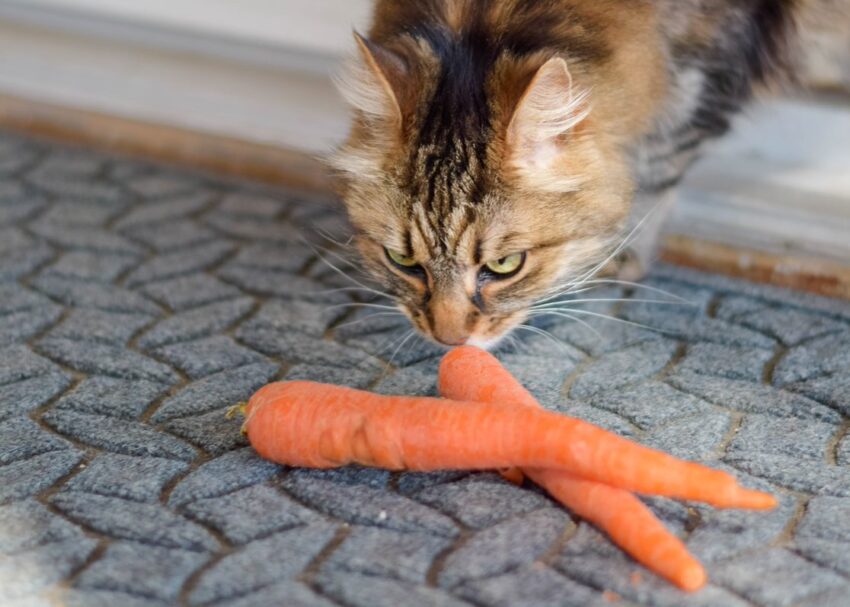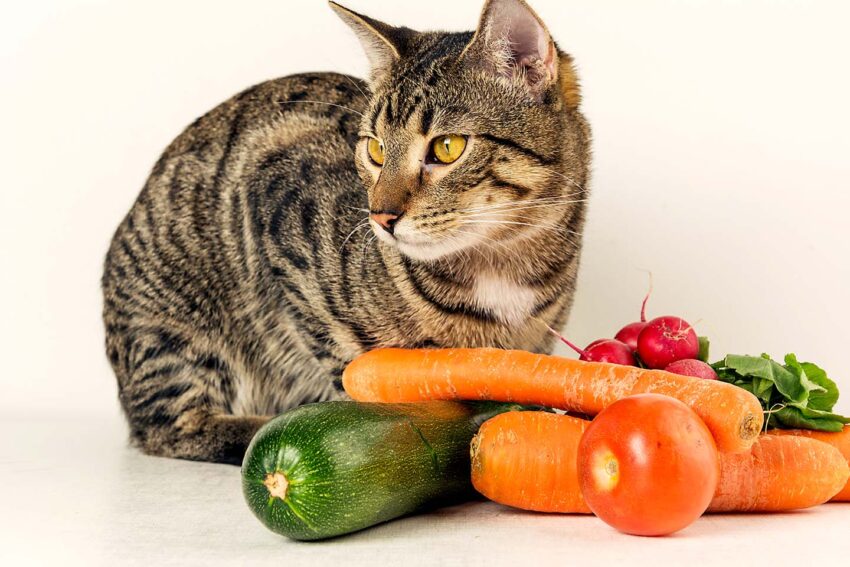
Can Cats Eat Carrots? The Truth About Feline Nutrition
Have you ever caught your furry feline friend trying to sneak a bite of your carrot sticks? As a cat parent, it’s natural to be concerned about your cat’s dietary habits and whether certain foods are safe for them to eat. Carrots are often touted as a healthy snack for humans, but can cats eat carrots too? In this article, we’ll explore the truth about feline nutrition and whether or not cats can safely enjoy this crunchy orange vegetable. This content is prepared by homepetusa.
The Basics of Feline Nutrition

Before we dive into the specifics of cats and carrots, let’s start with some basics about feline nutrition. Cats are obligate carnivores, which means that their bodies require certain nutrients found only in animal-based proteins. These nutrients include taurine, arginine, and arachidonic acid, among others. Unlike humans and some other animals, cats are unable to synthesize these nutrients on their own and must obtain them through their diet.
The Nutritional Value of Carrots
Carrots are a rich source of vitamins and minerals, including vitamin A, potassium, and fiber. They also contain antioxidants like beta-carotene, which can help boost the immune system and improve overall health. While these nutrients are beneficial for humans, they may not be as beneficial for cats. Keep reading: HOW TO CONVINCE YOUR PARENTS TO GET A CAT
Can Cats Eat Carrots?
The short answer is yes, cats can eat carrots in moderation. Carrots are not toxic to cats, and they can provide some nutritional benefits. However, it’s important to keep in mind that cats have very different nutritional requirements than humans do. While carrots contain vitamins and minerals that are good for us, they may not provide the same benefits for cats.
The Pros and Cons of Feeding Your Cat Carrots
On the plus side, feeding your cat small amounts of carrots can provide some nutritional benefits. Carrots are low in calories and high in fiber, which can help with digestion and weight management. They also contain antioxidants that may help support immune health.
However, there are also some potential downsides to feeding your cat carrots. One of the biggest concerns is that carrots are high in carbohydrates, which can be difficult for cats to digest. Cats are designed to obtain their energy from protein and fat, not carbohydrates, so a diet high in carbs can lead to weight gain and other health issues.
How to Feed Your Cat Carrots Safely
If you decide to offer your cat carrots as an occasional treat, there are a few things you should keep in mind. First, make sure the carrots are cooked and cut into small, bite-sized pieces. Raw carrots can be difficult for cats to digest and may pose a choking hazard. Second, limit the amount of carrots you offer your cat. While a small amount of carrot is unlikely to cause any harm, too much can upset their stomach and lead to diarrhea or vomiting.
What Other Foods Can Cats Eat?
While cats are obligate carnivores and require a diet rich in animal-based proteins, there are some other human foods that can be safe and even beneficial for cats in small amounts. Some examples include:
- Cooked lean meats like chicken or turkey
- Plain, cooked eggs
- Small amounts of cheese or yogurt
However, it’s important to keep in mind that cats have very different nutritional requirements than humans do. Feeding your cat a balanced and complete commercial cat food is the best way to ensure they get all the nutrients they need to thrive.
In conclusion, cats can eat carrots in moderation, but they should not be a regular part of their diet. While carrots can provide some nutritional benefits, they are not a substitute for the animal-based proteins that cats require.
